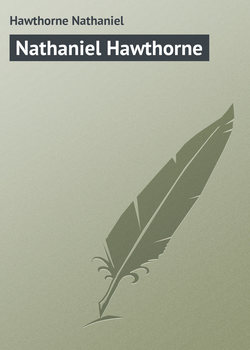Читать книгу Nathaniel Hawthorne - Hawthorne Nathaniel - Страница 1
ОглавлениеIntroduction
Hawthorne made three collections of his short stories and sketches: "Twice-Told Tales," "Mosses from an Old Manse," and "The Snow Image and Other Tales." The prefaces to these volumes express, with characteristic charm, the author's dissatisfaction with his handiwork. No critic has pointed out so clearly as Hawthorne himself the ineffectiveness of some of the "Twice-Told Tales"; he thinks that the "Mosses from an Old Manse" afford no solid basis for a literary reputation; and his comment upon the earlier and later work gathered indiscriminately into his final volume is that "the ripened autumnal fruit tastes but little better than the early windfalls."
It must be remembered that the collections were made in desultory fashion. They included some work that Hawthorne had outgrown even when the first volume was published, such as elaborate exercises in description and fanciful allegories, excellently composed but without substance. Yet side by side with these proofs of his long, weary apprenticeship are stories that reveal the consummate artist, mature in mind and heart, and with the sure hand of the master. The qualities of imagination and style that place Hawthorne easily first among American writers of fiction are as readily discernible in his best brief tales as in his romances.
"Dr. Heidegger's Experiment," with which the present volume opens, is Hawthorne's earliest treatment of the elixir of immortality theme, which haunted him throughout his life and was the subject of the unfinished romance which rested upon his coffin. He handles it daintily, poetically here, with an irony at once exquisite and profound. "The Birthmark" represents another favorite theme: the rivalry between scientific passion and human affection. It is not wholly free from the morbid fancy which Hawthorne occasionally betrays, and which allies him, on one side of his many-gifted mind, with Edgar Allan Poe; but the essential sanity of Hawthorne's moral, and the perfection of the workmanship, render "The Birthmark" worthy of its high place among modern short stories. "Ethan Brand" dates obviously from the sojourn at North Adams, Massachusetts, described in the "American Note-Book." Fragmentary as it is, it is one of Hawthorne's most powerful pieces of writing, the Unpardonable Sin which it portrays – the development of the intellect at the expense of the heart – being one which the lonely romancer himself had had cause to dread. The motive of the humorous character sketch entitled "Wakefield" is somewhat similar: the danger of stepping aside, even for a moment, from one's allotted place. "Drowne's Wooden Image" is a charming old Boston version of the artistic miracles made possible by love. In "The Ambitious Guest," the familiar story of the Willey House, in the Notch of the White Hills, is told with singular delicacy and imaginativeness, while "The Great Stone Face," a parable after Hawthorne's own heart, is suggested by a well-known phenomenon of the same mountainous region. Hawthorne's numerous tales based upon New England history are represented by one of the briefest, "The Gray Champion," whose succinct opening and eloquent close are no less admirable than the stern passion of its dramatic climax.
Not every note of which Hawthorne's deep-toned instrument was capable is exhibited in these eight tales, but they will serve, perhaps, to show the nature of his magic. Certain characteristics of his art are everywhere in evidence: simplicity of theme and treatment, absolute clearness, verbal melody, with now and again a dusky splendor of coloring. The touch of a few other men may be as perfect, the notes they evoke more brilliant, certainly more gay, but Hawthorne's graver harmonies linger in the ear and abide in the memory. It is only after intimate acquaintance, however, that one perceives fully Hawthorne's real scope, his power to convey an idea in its totality. His art is the product of a rich personality, strong, self-contained, content to brood long over its treasures. It is seldom in the history of literature – and quite without parallel in American letters – that a nature so perfectly dowered should attain to such perfect self-expression. Here lies his supreme fortune as an artist. He was permitted to give adequate expression to a rare and beautiful genius, and for thousands of his countrymen life has been touched to finer issues because Hawthorne followed his boyish bent and became a writer of fiction.
Bliss Perry.
